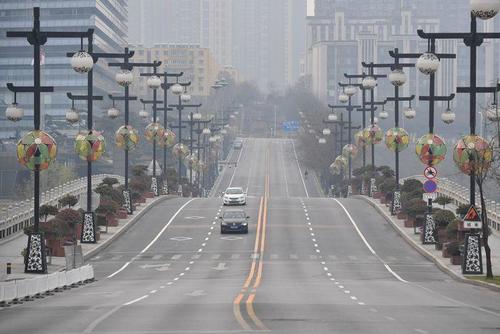China’s Zero COVID Strategy Weighs On Oil Demand Growth
As the COVID-19 variant, Omicron spreads across the US, Beijing has had a strict zero-tolerance policy to mitigate the spread of the virus by locking down cities and has sparked disruptions to factory production, travel, and consumer spending, according to Bloomberg.
In Xi’an, a northwest city larger than New York City, lockdowns have made it impossible to enter or go out of the metro area. According to traffic data from Baidu Inc., congestion in the city plunged 29% on Jan. 4 compared with the same day last year. However, congestion in Shanghai, Beijing’s commercial capital, and Guangzhou was slightly above average.
With the transmission of the virus higher in the winter months, Beijing will likely keep lockdowns or at least strict public health measures in place until spring. China’s zero-Covid policy is set to weigh on economic activity and destroy demand growth for crude.
“In view of the government’s escalated mobility restrictions, IHS Markit has further lowered its projection for China’s total oil demand in the first quarter of 2022 by 420,000 barrels a day,” said Fenglei Shi, associate director of oil markets. Shi noted the revision includes 248,000 barrels-a-day of gasoline and 124,000 barrels of jet fuel. National figures show oil demand was approximately 14.2 million barrels in November.
There’s a growing confluence among research firms that oil demand in China will slump in the first quarter. Energy Aspects Ltd. also reduced its first-quarter estimate by 110,000 barrels a day. It warned further reductions would be seen if other cities were placed into lockdown. Wood Mackenzie Ltd. is another firm that said gasoline consumption would fall by 15,000 barrels per day this quarter.
China’s harsh measures to contain the outbreak instead of living with the virus are slowing its economy. As a result, Beijing has pledged to stabilize the economy.
Last month, the PBOC cut the RRR by 50bps effective Dec. 15, a move that would release an abundance of liquidity into markets. Goldman Sachs expects another reduction in the RRR in the first quarter, with easing focused on credit and fiscal measures to create a soft landing.
Besides lockdowns, oil demand could slip even further during the Lunar New Year, beginning on Feb. 1.
To sum up, pandemic lockdowns, holidays, and Beijing’s clean-air orders aimed at curbing industrial production ahead of the Winter Olympics next month are expected to reduce China’s first-quarter oil demand.
Meanwhile, OPEC+ has agreed to approve another 400,000 barrel-a-day increase scheduled for February. Now, the question is if OPEC+ will stick to the script or deviate from next month’s meeting due to a China slowdown.
Tyler Durden
Thu, 01/06/2022 – 12:10
via ZeroHedge News https://ift.tt/3t02BiE Tyler Durden
